- UEC announces 1,025 MPs elected in 2025 general elections
- Junta tightens travel restrictions on Arakanese people in mainland Myanmar
- Regime steps up offensive toward Arakan State via Ayeyarwady coastal route
- Elderly IDP killed, two others injured in junta airstrike on Kyaukphyu village
- AAPP urges urgent international action as junta crimes against humanity escalate
Storm-ravaged communities in Arakan still lack access to clean drinking water
Water in the lake has turned salty, but villagers have no other source of water, and have been forced to use that lake.
30 May 2023
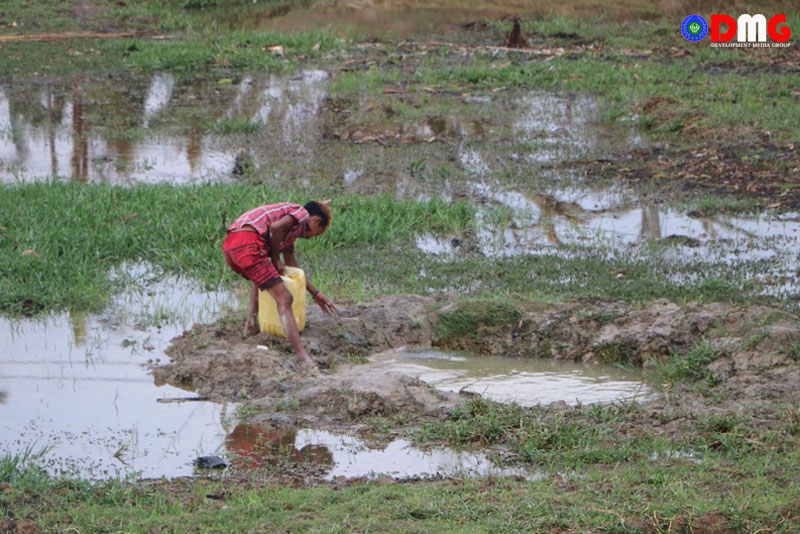
DMG Newsroom
30 May 2023, Sittwe
Townships in northern Arakan State are still suffering from drinking water shortages as wells and lakes were contaminated by the storm tide and debris when Cyclone Mocha hit the state on May 14.
Rathedaung, Ponnagyun, Pauktaw and Kyauktaw townships that were hit hardest by the storm and urgently need drinking water. Local residents are suffering from diarrhea because they are forced to drink contaminated water.
Ko Kyaw Hlaing, resident of Sin Inn Gyi village in Ponnagyun Township said: “The lake became dirty when a tree fell into the lake during the storm. The water has to be pumped out of the lake.”
Water in the lake has turned salty, but villagers have no other source of water, and have been forced to use that lake, he said.
Local civil society organizations have been delivering water to villages in storm-affected townships, but it is not sufficient, said villagers.
Cheinkalein village in Rathedaung Township is also facing drinking water shortages as lakes were contaminated during the storm, said village administrator U Tun Tin Soe.
“We don’t have drinking water. As it rained recently, we can use water in the fish breeding lake for washing and bathing. The drinking water lake at the monastery was contaminated during the storm, and we had pumped it out,” said U Tun Tin Soe.
All the houses were destroyed by the storm in Thaekhone village in Pauktaw Township.
Daw Ma Myint San from Thaekhone village said: “We only have saltwater to drink and bathe. Some donors have come and brought us drinking water. But when there are no donors, we have to drink saltwater. As temperatures are extremely high, and people have to drink saltwater, some have gotten sick or suffered from diarrhea.”
Displacement camps in Kyauktaw and Rathedaung townships are also facing drinking water shortages, said people in the camps.
Daw Oo Mya Nu from a displacement camp in Rathedaung Township said: “We are allowed to fetch a bottle of water per person from Pyitawthar Lake. It is nothing more than muddy water. The lake opens at 5 am and closes at 6 pm. A civil society organization called Individual Hygiene also provides water to us. But it is not good for drinking. Some people at the camp are suffering from diarrhea.”
According to a May 21 report of the United Nations Office on Coordination of Humanitarian Affairs, destruction of public infrastructure as well as disruptions to water systems continue to limit access to clean drinking water in Arakan, resulting in increased risk of waterborne disease.




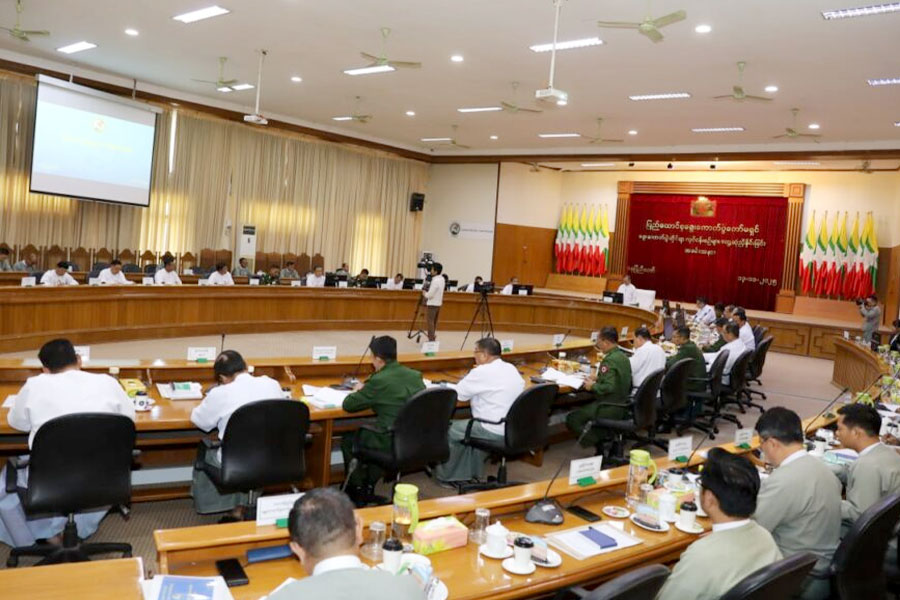
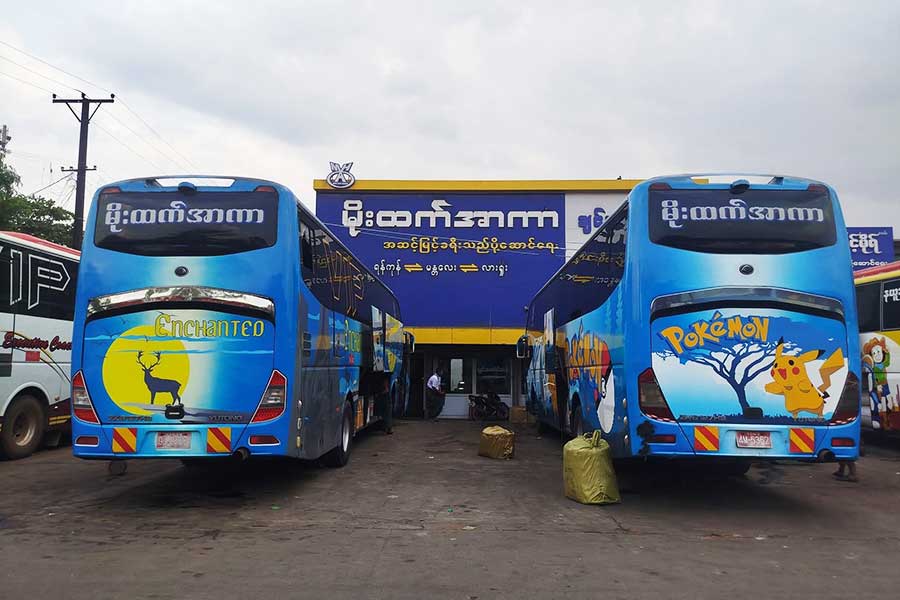
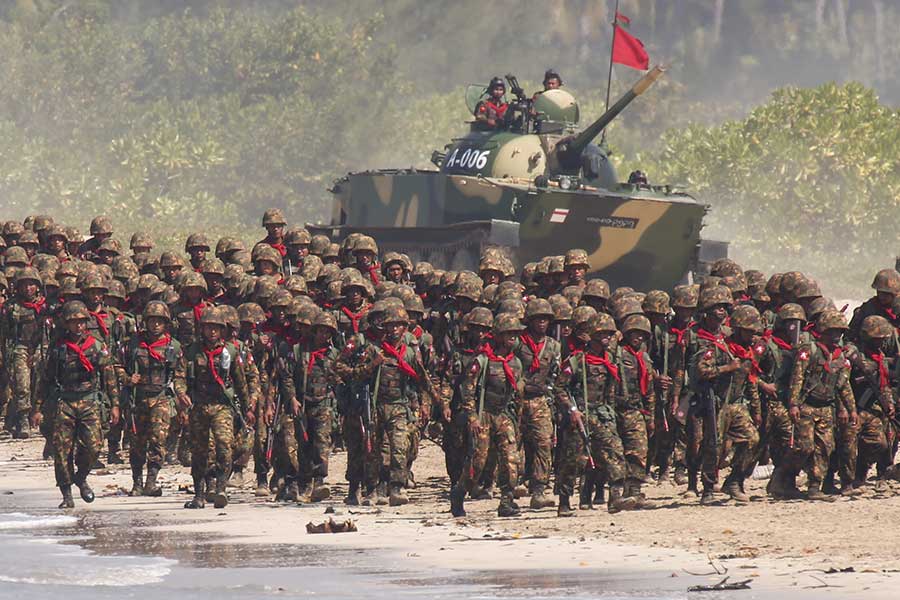
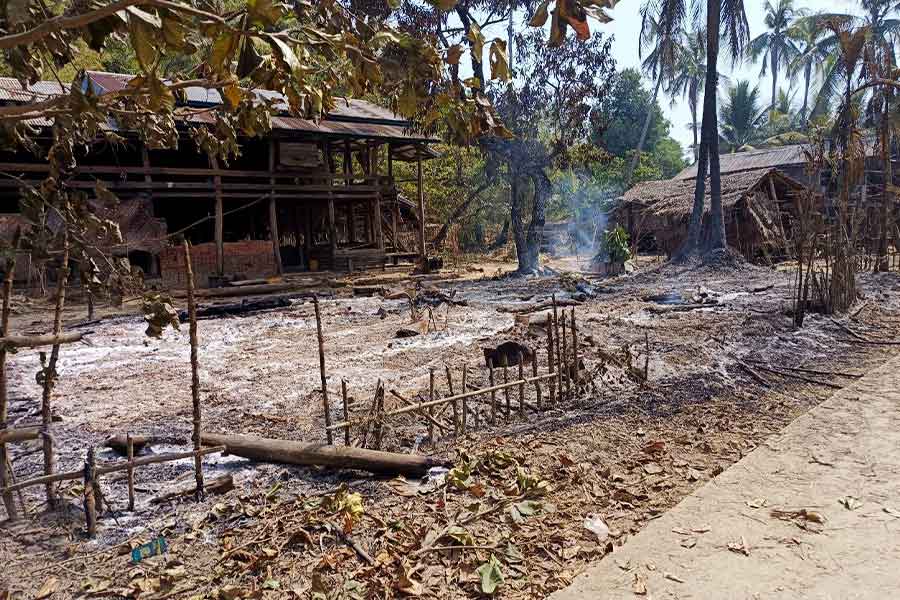
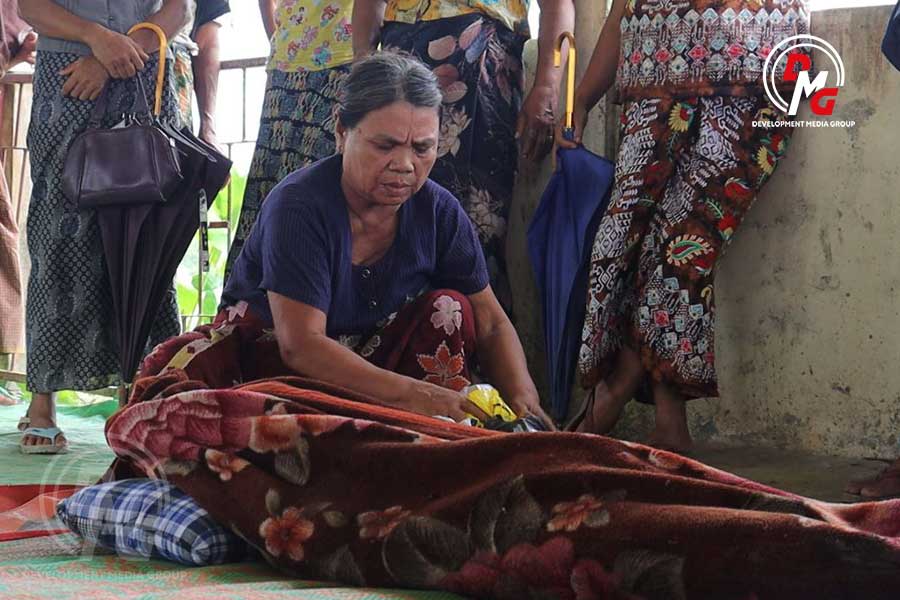






.jpg)

